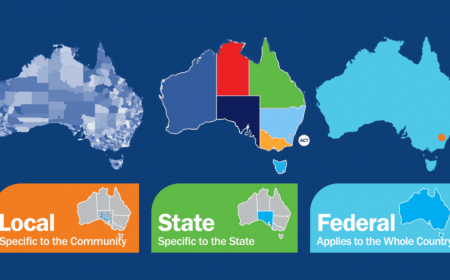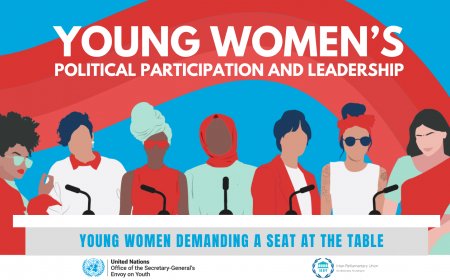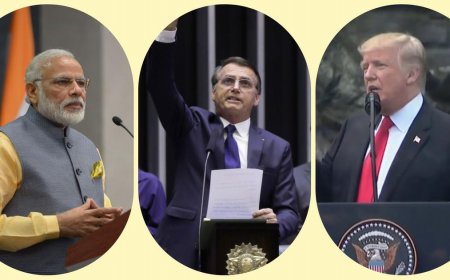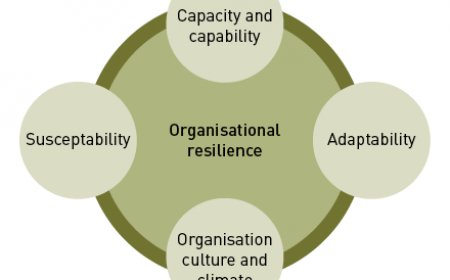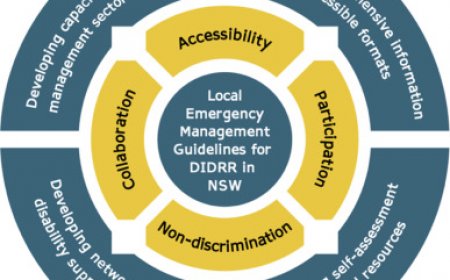Global Elections: Women Leaders Breaking Gender Barriers
Discover how women leaders are breaking gender barriers in global elections. Explore inspiring case studies, challenges faced, and the profound impact of female leadership on governance and society.
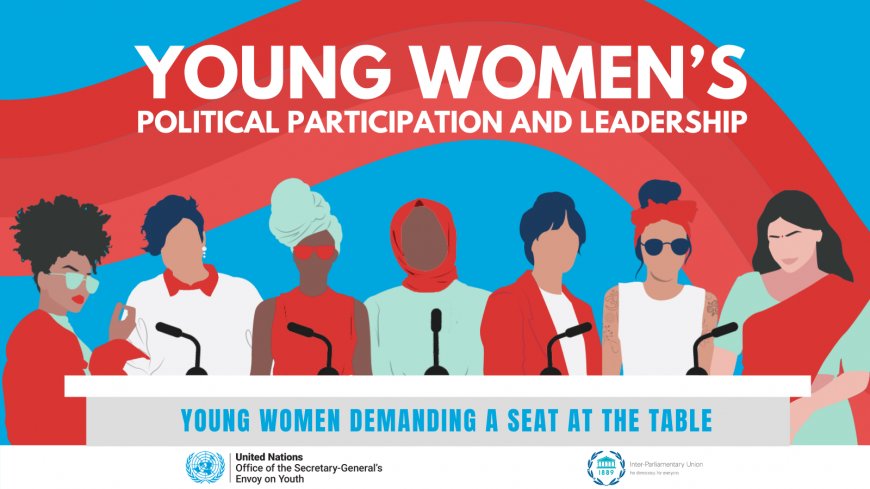
In recent years, the world has witnessed a remarkable transformation in global politics. Women leaders are increasingly stepping into roles traditionally dominated by men, breaking gender barriers and reshaping the political landscape. From grassroots movements to national elections, women are proving their mettle as capable, visionary, and resilient leaders. This article delves deep into the phenomenon of women leaders emerging across the globe, exploring their challenges, triumphs, and the profound impact they have on societies.
The Rise of Women Leaders in Global Politics
A Shift in Political Dynamics
Historically, political leadership has been male-dominated, with women often relegated to secondary roles. However, the 21st century has seen a paradigm shift. Countries like New Zealand, Germany, Finland, and Argentina have elected women leaders who have not only governed effectively but have also set new benchmarks for leadership. This rise is not just about numbers; it reflects a deeper societal acknowledgment of women's capabilities in governance.
The emergence of women leaders is not an isolated trend but rather a culmination of decades of advocacy, policy changes, and evolving societal norms. The increasing visibility of women in leadership roles has inspired younger generations to dream bigger and aim higher. For instance, the election of Kamala Harris as the first female Vice President of the United States sent shockwaves across the globe, demonstrating that even the most entrenched patriarchal systems can be challenged and redefined.
Why Women Leaders Are Gaining Ground
Several factors contribute to the increasing prominence of women in global elections. These include:
-
Changing Societal Norms: Societies are becoming more inclusive, recognizing that leadership qualities are not defined by gender. As cultural attitudes evolve, voters are increasingly prioritizing competence and vision over traditional gender roles.
-
Advocacy Movements: Movements like #MeToo and #HeForShe have brought gender equality to the forefront, encouraging women to participate actively in politics. These movements have also highlighted the systemic barriers women face, prompting calls for reform and greater representation.
-
Educational Empowerment: Higher education levels among women have equipped them with the skills and confidence needed to lead. Universities and institutions worldwide are producing a generation of highly educated women who are ready to take on leadership roles in various sectors, including politics.
-
Economic Contributions: Women’s growing participation in the workforce has demonstrated their ability to manage complex systems and drive economic growth. This has translated into increased trust in their capacity to lead nations.
"Women leaders bring diverse perspectives to governance, fostering inclusivity and innovation."
Pioneering Women Leaders Around the World
Jacinda Ardern: A Beacon of Empathy and Resilience
New Zealand’s former Prime Minister Jacinda Ardern became a global icon for her empathetic leadership during crises like the Christchurch mosque shootings and the COVID-19 pandemic. Her ability to connect with people and make tough decisions earned her widespread admiration. Ardern’s leadership style was characterized by transparency, compassion, and decisive action. She implemented one of the world’s strictest lockdowns during the pandemic, which resulted in New Zealand having one of the lowest mortality rates globally.
Her resignation in 2023 marked the end of an era, but her legacy continues to inspire millions. Ardern’s emphasis on mental health, climate change, and social welfare has set a benchmark for future leaders. She proved that empathy and strength are not mutually exclusive traits but complementary qualities that define effective leadership.
Angela Merkel: The Iron Chancellor
Germany’s Angela Merkel served as Chancellor for 16 years, steering Europe’s largest economy through multiple crises. Known for her pragmatic approach, she was often referred to as the "leader of the free world" during turbulent times. Merkel’s tenure saw her navigate the Eurozone crisis, the refugee influx, and Brexit negotiations with remarkable poise and determination.
What set Merkel apart was her ability to remain calm under pressure and make data-driven decisions. Unlike many of her contemporaries, she avoided populist rhetoric and focused on long-term solutions. Her leadership style was often described as low-key yet highly effective, earning her respect both domestically and internationally.
Sanna Marin: Redefining Youth Leadership
At just 34, Sanna Marin became Finland’s youngest-ever Prime Minister. Her progressive policies on climate change and social welfare have positioned Finland as a model for modern governance. Marin’s government introduced bold initiatives such as a four-day workweek pilot program and ambitious carbon neutrality goals.
Marin’s leadership represents a new wave of young, tech-savvy leaders who are unafraid to challenge conventional wisdom. Her use of social media to engage directly with citizens has redefined how politicians communicate with their constituents. Despite facing criticism from conservative quarters, Marin remains steadfast in her commitment to creating a fairer and more sustainable society.
Kamala Harris: Breaking Barriers in the U.S.
As the first female Vice President of the United States, Kamala Harris shattered multiple glass ceilings. Her election marked a historic milestone for women of color in American politics. Harris’s journey from being a prosecutor to occupying the second-highest office in the land is a testament to perseverance and resilience.
Harris has championed causes such as criminal justice reform, reproductive rights, and climate action. While her tenure has faced challenges, including navigating a deeply polarized political environment, she continues to advocate for marginalized communities and push for meaningful change.
Challenges Faced by Women Leaders
Gender Bias and Stereotypes
Despite their achievements, women leaders often face scrutiny based on outdated stereotypes. They are judged not only on their policies but also on their appearance, tone, and personal lives. Terms like "bossy" or "emotional" are frequently used to undermine their authority, while similar traits in male leaders are celebrated as assertiveness or passion.
This double standard extends to media coverage, where women leaders are disproportionately criticized for their fashion choices or family dynamics. Such biases create additional hurdles for women seeking public office and can deter potential candidates from pursuing leadership roles.
Media Representation
The media plays a crucial role in shaping public perception. Unfortunately, women leaders are frequently subjected to biased reporting, with an emphasis on trivial matters rather than their accomplishments. For example, headlines often focus on what a female leader wore during a press conference rather than the substance of her speech.
To counteract this, some women leaders have adopted innovative communication strategies. Social media platforms allow them to bypass traditional gatekeepers and engage directly with the public. By controlling their narratives, they can highlight their achievements and build stronger connections with voters.
Work-Life Balance
Balancing professional responsibilities with family life remains a significant challenge for women leaders. Societal expectations often place undue pressure on them to excel in both domains. Unlike their male counterparts, women leaders are frequently questioned about how they manage childcare or household duties, diverting attention away from their professional capabilities.
Some countries have addressed this issue by implementing supportive policies such as parental leave and flexible working arrangements. However, much work remains to be done to create an equitable environment for women in leadership.
Impact of Women Leaders on Governance
Policy Innovations
Women leaders tend to prioritize issues such as healthcare, education, and social welfare. Their focus on these areas has led to tangible improvements in quality of life for citizens. For instance, studies show that countries with higher female representation in parliament allocate more resources to public health and education.
In addition, women leaders are more likely to adopt collaborative approaches to problem-solving. They emphasize consensus-building and inclusivity, which fosters greater public trust and cooperation. This leadership style is particularly effective in addressing complex, multifaceted challenges like climate change and inequality.
Crisis Management
Studies show that countries led by women handled the COVID-19 pandemic more effectively. Their empathetic yet decisive leadership styles proved instrumental in navigating unprecedented challenges. Leaders like Jacinda Ardern and Tsai Ing-wen implemented early and stringent measures that minimized the virus’s spread and protected their populations.
Their success underscores the importance of emotional intelligence in leadership. By acknowledging fear and uncertainty while providing clear guidance, these leaders maintained public morale and compliance during difficult times.
Promoting Gender Equality
By occupying top positions, women leaders inspire future generations to pursue leadership roles. Their presence in power sends a powerful message about equality and opportunity. Moreover, they often champion policies that advance gender parity, such as equal pay legislation and anti-discrimination laws.
Countries with women leaders also tend to see increased female participation in other sectors, including business and academia. This ripple effect contributes to broader societal progress and reinforces the value of diversity in leadership.
Case Studies of Successful Women Leaders
Ruth Bader Ginsburg: A Legal Trailblazer
Although not an elected official, Justice Ruth Bader Ginsburg’s contributions to gender equality in the United States were monumental. Her work paved the way for countless women to enter public service. As a Supreme Court Justice, Ginsburg authored landmark opinions that expanded women’s rights and challenged discriminatory practices.
Ginsburg’s legacy extends beyond her legal achievements. She became a cultural icon, symbolizing resilience and determination in the face of adversity. Her life story serves as a reminder of the importance of persistence in the pursuit of justice.
Ellen Johnson Sirleaf: Africa’s First Elected Female Head of State
Liberia’s Ellen Johnson Sirleaf overcame immense challenges to become Africa’s first democratically elected female president. Her tenure focused on rebuilding a war-torn nation and promoting peace. Sirleaf implemented economic reforms, improved infrastructure, and strengthened democratic institutions.
Her efforts earned her the Nobel Peace Prize in 2011, recognizing her contributions to peacebuilding and women’s empowerment. Sirleaf’s presidency demonstrated that women leaders can successfully navigate post-conflict recovery and foster lasting stability.
Tsai Ing-wen: Championing Democracy in Taiwan
President Tsai Ing-wen has been a steadfast advocate for democracy and human rights. Under her leadership, Taiwan has emerged as a beacon of freedom in Asia. Tsai has navigated tensions with China while promoting Taiwan’s unique identity and values.
Her administration has prioritized technological innovation, environmental sustainability, and LGBTQ+ rights. Tsai’s leadership exemplifies how women leaders can balance pragmatism with idealism to achieve transformative outcomes.
The Role of Grassroots Movements
Grassroots organizations play a pivotal role in empowering women to run for office. Initiatives like She Should Run and EMILY’s List provide resources, mentorship, and funding to aspiring female candidates. These movements ensure that women from diverse backgrounds have the support they need to succeed.
Grassroots activism also helps amplify women’s voices and hold governments accountable. By mobilizing communities and advocating for policy changes, these movements create a fertile ground for women leaders to emerge and thrive.
Future Prospects for Women in Politics
Emerging Trends
The trend of electing women leaders shows no signs of slowing down. Younger generations are increasingly supportive of female candidates, signaling a bright future for gender parity in politics. Technological advancements and shifting societal values are further accelerating this progress.
Technological Advancements
Social media platforms have democratized political campaigns, allowing women to reach wider audiences without relying solely on traditional media channels. Digital tools enable grassroots fundraising, real-time engagement, and targeted messaging, leveling the playing field for women candidates.
Global Collaboration
International organizations like the United Nations are actively promoting women’s participation in politics. Programs aimed at capacity-building and networking are helping women leaders thrive globally. Cross-border partnerships and knowledge-sharing initiatives are fostering a community of support for women in leadership.
Travel Tips for Exploring Women-Led Nations
If you’re inspired by the stories of these trailblazing women leaders, consider visiting their home countries to gain firsthand insights into their cultures and governance models.
- New Zealand: Explore Wellington, where Jacinda Ardern once worked. Visit Te Papa Museum to learn about Maori culture.
- Germany: Tour Berlin and visit the Reichstag Building, symbolizing Angela Merkel’s legacy.
- Finland: Experience Helsinki’s vibrant startup scene, reflecting Sanna Marin’s innovative vision.
Other Tourist Attractions Linked to Women Leaders
- Argentina: Visit Buenos Aires to honor Eva Perón’s enduring influence on Argentine politics.
- India: Pay homage to Indira Gandhi at her memorial in Delhi.
- United Kingdom: Discover Margaret Thatcher’s impact at the Churchill War Rooms in London.
Conclusion
The rise of women leaders in global elections signifies a transformative era in history. By breaking gender barriers, these trailblazers are not only redefining leadership but also inspiring millions worldwide. As societies continue to embrace inclusivity, the future holds immense promise for women in politics. Together, we can build a world where leadership knows no gender boundaries.
Frequently Asked Questions (FAQs)
-
Who was the first woman Prime Minister in the world?
Sirimavo Bandaranaike of Sri Lanka became the world’s first female Prime Minister in 1960. -
How many countries currently have women heads of state?
As of 2023, approximately 25 countries are led by women heads of state or government. -
What challenges do women leaders face in male-dominated fields?
Women leaders often encounter gender bias, unequal media coverage, and societal expectations regarding work-life balance. -
Which country has had the most female leaders?
New Zealand holds this distinction, having elected multiple women Prime Ministers. -
How does having women leaders affect policy outcomes?
Research indicates that women leaders prioritize social welfare, healthcare, and education, leading to improved societal well-being. -
Are there quotas for women in politics?
Some countries, like Rwanda and Sweden, implement gender quotas to ensure women’s representation in government. -
What role do grassroots movements play in supporting women leaders?
Grassroots movements provide essential resources, training, and advocacy to help women enter and succeed in politics. -
How has social media impacted women’s political campaigns?
Social media has enabled women candidates to bypass traditional gatekeepers and directly engage with voters. -
Which young woman leader is making waves today?
Sanna Marin of Finland is a prominent example of youthful, progressive leadership. -
What can individuals do to support women in politics?
Supporting women-led initiatives, voting for qualified female candidates, and advocating for equal representation are impactful steps.
What's Your Reaction?
 Like
0
Like
0
 Dislike
0
Dislike
0
 Love
0
Love
0
 Funny
0
Funny
0
 Angry
0
Angry
0
 Sad
0
Sad
0
 Wow
0
Wow
0



